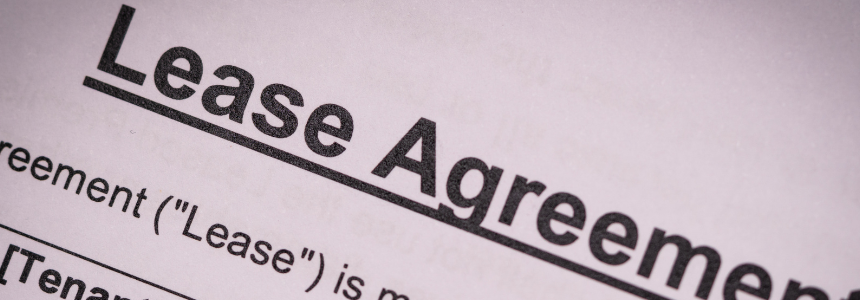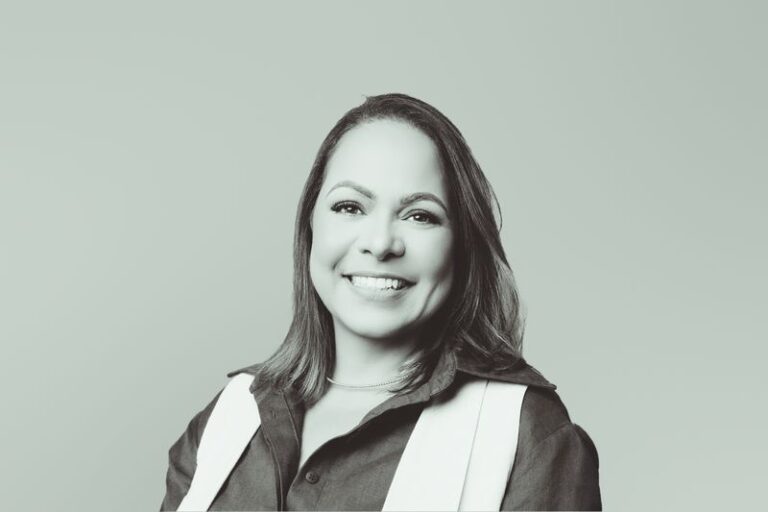Is Buying a Leasehold Property a Good Idea?

Nexa’s Consultant Solicitor Zahrah Aullybocus discusses the pros and cons of leasehold property purchases.
There are many ‘sales’ articles out there trying to sell you a flat. Is it a good idea? For some, it is the only means of getting onto the housing ladder as freehold house prices are out of reach.
Buying a flat is ‘communal living’ – i.e. you share the building with others. You have to be careful not to make too much noise or tread on your neighbour’s toes. You may have a ‘share’ in the freehold or management of the building, but ultimately payment for upkeep and maintenance of areas outside of your flat will fall onto the people that own the flats in the building (regardless of whether you live there or rent the flat out). Before walking into what many have described as “leasehold hell”, be prepared so that you can weigh up whether buying a flat is right for you.
You may have been sold the beautiful dream of a nicely dressed up apartment, stylish modern kitchen, an extra en-suite. Whilst the “premium” for a flat may be cheaper than a house, it comes with its own ‘other baggage’ in terms of additional payments:
Ground Rent: This is an annual payment to the person who owns the building. Be careful to pay attention to the advice from your solicitor – you should be told whether the ground rent is likely to go up and when. Sometimes the ground rent is a “peppercorn” meaning there is no ground rent payable. Beware some lenders will not provide a mortgage where the ground rent is more than 0.1% of the property value.
Service Charges: These charges are for the maintenance and repair of the building and/or estate (which may include private car parking areas, roads, drains and sewers). Your lease should set out what you need to pay and when, and what expenses can be recovered. The service charges are normally set by the entity that is responsible for the day-to-day management of the building. This could be the freeholder or a specifically named management company. Be careful when looking at the figures given. It is only a ‘snapshot’ of the current position. Spending could go up (or down) but usually in the upwards direction. Many do not give copy invoices of what they have spent, just a ‘breakdown’.
Whilst external maintenance is usually carried out by freeholder/management company – it is important to get an idea of what the companies you are dealing with are like – it is not easy to divorce your freeholder/managing agent if they do not perform to your expectations. Challenge is possible but again, that involves spending your time (and possibly money) to get them to provide the relevant information.
What are you responsible for maintaining?
You will need to check your lease very carefully. Whilst Leasehold operates “landlord” and “tenant” terminology (as if you were ‘renting’) the obligations are very different when you buy a long residential lease. It is normally the case that you are responsible for everything inside your flat (so boilers, electrics, kitchen, bathrooms etc). The structure of the building and the roof is normally the responsibility of the building owner with leaseholders contributing towards maintenance and repair of the same.
What can you do with your flat?
Your lease will contain a long list of obligations you need to comply with whilst you are the legal owner. This also includes a list of what you can or cannot do with the property (e.g. you can’t start knocking out walls or keep pets without permission). The list can run into pages of restrictions and/or requirements.
How long do I get on a lease?
Going back to the “Landlord” and “Tenant” or “Leaseholder” terminology – a lease means the property is yours “for a limited time only”! Leases can be for any period from 99 years to 999 years. Whilst you may not live to see the number of years through, there does need to be significant time left on the lease for the property to be worth buying. Do be aware that the lease may need extending. This can be a costly procedure depending on how many years are left on the lease. Just make sure you get your lease extended before it gets down to 85 years. Once it gets to 80 years, something called ‘marriage value’ kicks in making the price you need to pay to extend the lease much more expensive. If you are currently in a situation where your lease needs extending – please contact one of Nexa’s experts! There is currently talk of making the process cheaper and easier, though these reforms are currently being discussed in Parliament and there is no guarantee that the proposals will reach legislation.
Building Safety Act 2022
This piece of legislation was brought in response to the Grenfell Tower tragedy in 2017. It is not only to do with ‘combustible cladding’ but other defects that could put people’s safety at risk from the spread of fire or structural collapse. The defects could have been caused during the construction process or any later work that is done to the building. There are protections given in the legislation to protect leaseholders. However, this only extends to those leases that qualify and are located in one of these ‘Relevant Buildings’ (i.e. in a building which is 11m or 5 storeys in height).
This is a hideously complex piece of legislation so much so that some solicitors (including Nexa) have taken the view not to act on such transactions. There are many ‘loopholes’ that have yet to be closed and many questions still unanswered. What is certain though, if you buy one of these flats, and work is required, you may end up with a huge bill (despite so called ‘protections’). Many of these buildings have not yet been assessed as to what work is required.
If you are going through the conveyancing process and buying a flat, please note there is no protection or funding available to remediate those flats under the 5 storey/11m height.
Further information can be found here: Building safety leaseholder protections: guidance for leaseholders – GOV.UK (www.gov.uk)
Flats located in buildings that are 7 storeys/18m or more are classed as “higher risk” buildings and have to be registered with the Building Safety Regulator. There are more requirements to communicate fire safety procedures to residents and to keep the building under continual assessment to ensure that no dangers or safety risks are created.
If you are looking at buying a flat, do try to stick to the lower rise buildings (under 11m) and look for anything that may be flammable stuck to the outside of the building – e.g. wooden panels, timber decking on balconies. It’s not a complete failsafe – there could be other issues affecting the building that we can’t find out without cutting holes in the walls!
Buildings Insurance
Buildings insurance is normally arranged by the Landlord/Management Company. Some Landlords have lots of properties and therefore have one policy that covers all their properties. This type of buildings insurance does not cover your personal belonging or contents. You will need to find your own ‘contents only’ policy. Block policy insurance also does not normally cover individual leaseholders for alternative accommodation should there be any reason you cannot stay in your property.
You will normally need to go through the Landlord/Management Company if a claim needs to be made. There will normally be an obligation on the Landlord/Management Company to insure the building and to re-build (or reinstate it) should something happen to it. Depending on the wording of the lease, you may not get any money back if the building burns down. The devil will be in the detail of the lease so it is important to check these provisions carefully.
Complex Legal Structures
Do ask for your legal structure to be explained to you, especially if the Landlord is not the same entity that owns the freehold.
Conveyancing Fees
Conveyancing fees will always be more expensive when buying or selling a flat. Do expect to be charged the following:
When selling: a “Freeholder Information Pack” – this asks the Landlord/Management Company information on how the building is run. There is a set questionnaire, though some companies prefer to provide their own and you may be charged if additional questions are raised by the buyer’s solicitors.
When buying:
- Notice of Transfer Fee (to notify the Landlord/Management Company that you have bought the property)
- Notice of Charge Fee (to notify the Landlord/Management Company you have purchased the property with the aid of a mortgage);
- Certificate of Compliance Fee (this will depend on whether or not there is a restriction on the title that requires consent from the Landlord/Management Company to the transfer/specific conditions in the lease);
- Deed of Covenant Fee (a specific document creating a direct relationship between the incoming buyer and Landlord/Management Company);
- Membership Application/Share Certificate Fee (only applies if you are required to become a member or take a share in the management company).
Reform/New Legislation
There is talk of reform in the Leasehold and Freehold Reform Bill 2023-2024 which includes:
- Proposals to remove ground rent from all leases (though we doubt this is going to be put into law without being challenged by those who make an income from ground rent)
- Easier and cheaper lease extensions – abolishing the 2-year rule to qualify for a statutory lease extension and removal of ‘marriage value’ from the calculations.
Further information can be found here: Guide to the Leasehold and Freehold Reform Bill – GOV.UK (www.gov.uk) Please note that this is currently in discussion and it is not known what the final form of the legislation will bring.
Should I go ahead or not?
I know I can’t talk you out of buying if a flat is your only option. However, do know what you are walking into and stay armed with as much information as possible. Leasehold is complicated! Figures you are given now will not stay the same during your ownership. We are seeing lots of questions around issues with leasehold. If you require legal assistance with issues such as:
- What to do to challenge service charge bills;
- What happens if the Landlord wants to repossess your property;
- What do to if you are being chased by the Management Company for monies that they have not provided a justification for.
If you have any enquiry relating to a lease purchase, contact Zahrah Aullybocus on +44 (0)1691 655 060 ext. 2227 or email Zahrah.aullybocus@nexa.law







